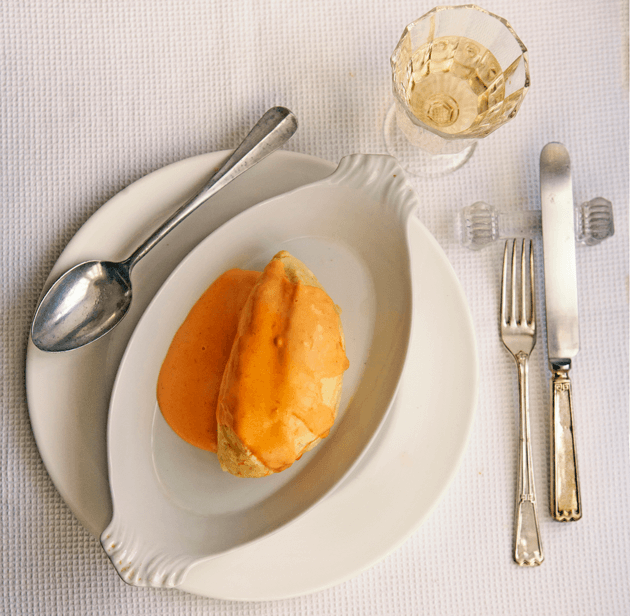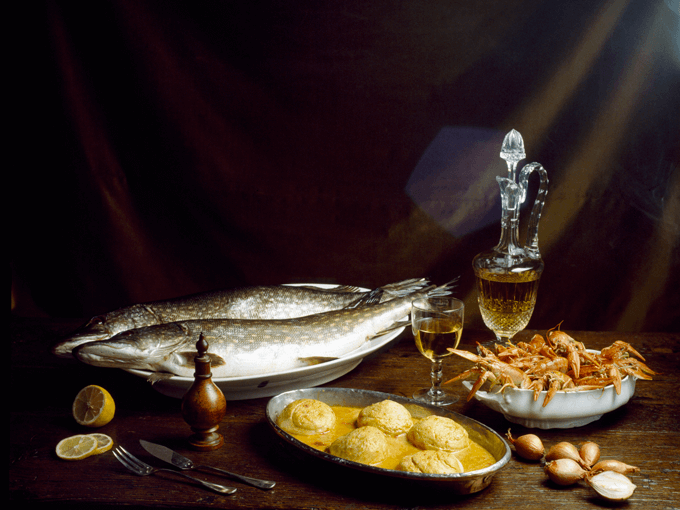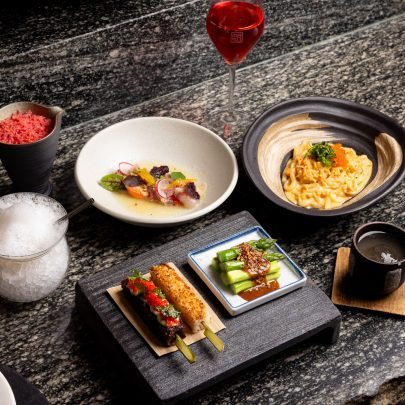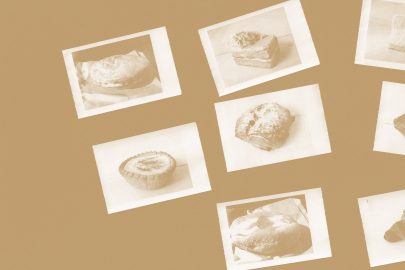May 17, 2019 Food
Kiwi teacher Rebecca Roche left her life in New Zealand to follow love halfway across the world. Leaving her home city for the first time she discovers what it feels like to not belong.
“So a quenelle is, for all intents and purposes, a fish-flavoured dumpling covered in lobster gravy?”
I was squished at a red-and-white-checkered table, in a tiny restaurant in Lyon, trying to navigate a foreign menu. Facing me was my dismayed French partner, whom I had moved across the world to be with. I hadn’t planned to fall in love. It was supposed to be a summer romance with a traveller who was just passing through. Now here I was: away for the first time from the city where I grew up, friendless, jobless, unable to speak French, ordering a fishy dumpling for dinner.
My boyfriend closed his beautiful and judgmental French eyes and sighed. “You have to stop comparing French food to New Zealand food”, he told me. “A quenelle is a quenelle.” I wasn’t trying to be obtuse. Not then, and not when I said saucisson cuit was essentially bangers and mash, or les œufs à la neige (a dessert with exactly two ingredients: white sugar and egg whites) was known back home as Pavlova. It’s not that French people are humourless. Most anything is fair game, and jokes run the gamut from shockingly dark to completely absurd. But the French don’t often laugh at themselves, and definitely not at their food.
My faux pas (my French is coming along nicely, thanks for asking) underscored that fundamental difficulty of moving to a foreign country: how subtle or unexpected cultural differences are vitally important to get a handle on if you don’t want to constantly come across as a twit.

Assimilating into France took a whole lot more humility than I had anticipated. I had been pretty sure that my Kiwi sense of humour and general friendliness would go a long way in compensating for my lack of the language. I was perhaps even a little arrogant – “Kiwis are loved world-over”, I assured myself. I quickly learned that smiling at people on the metro made them clasp their bags tighter. Leaving cute “come meet your new neighbour” cards in the doors on my apartment floor resulted in an evening alone with too many snacks for one. The hardest part was that my usual way of connecting with people – self-mockery and oversharing – either made people incredibly awkward, or suspicious. And now I’d nearly been dumped because I had failed to show a quenelle the respectful deference it deserved.
In my meat-and-three veg family back home, a typical dinner lasts approximately twenty minutes, starting with the call of “grubs up!” and ending with my dad’s standard compliment “ooh lovely jubbly” (I just asked my partner what would be the French equivalent of “ooh yummy!” and he said “Hmmm, I don’t know. Probably an actual sentence”). If it’s a special occasion, we might have the family-famous chocolate pudding. Someone will joke that it’s lucky we have a seperate tummy for dessert. By about 8.30 the dishes will be cleared and the table will have been abandoned. It all sounds a bit plebeian when described like that, but these habits of behaviour give our family meals structure, predictability, expectations – what you could generously call a kind of eating culture.
By stark contrast, a proper gastronomic meal in France (a way of eating which appears on UNESCO’s list of Intangible Cultural Heritage) includes at least four courses: a starter, a fish or meat dish, cheese, and dessert, bookended by an apéritif and a liqueur. Dinner doesn’t usually kick off until at least 9pm, usually later, wrapping up at midnight at the earliest. I don’t know many Kiwi families who honestly have three hours’ worth of things to say to each other on a regular basis.
Cultural norms are often so taken-for-granted as to be invisible to the people who obey them. These unwritten rules allow us to seamlessly operate in a culturally appropriate manner, all the while thinking we are acting normally. Moving to France, I was painfully aware that everyone else was using a different rulebook.
People often say they have a different personality when they speak another tongue, and I always assumed this was about poverty of language. Perhaps they didn’t have the vocabulary, the metaphors, the expressions to truly express the “real” them. What I’ve found is it’s more a reflection of the mutual influence of culture and personality, and I’ve also started to appreciate how some of the traits I thought were intrinsically me, are in fact contextual to where I am in the world. I’m still Kiwi enough to call a spade a spade, though. And honestly, a quenelle is just a fucking dumpling in the end.





